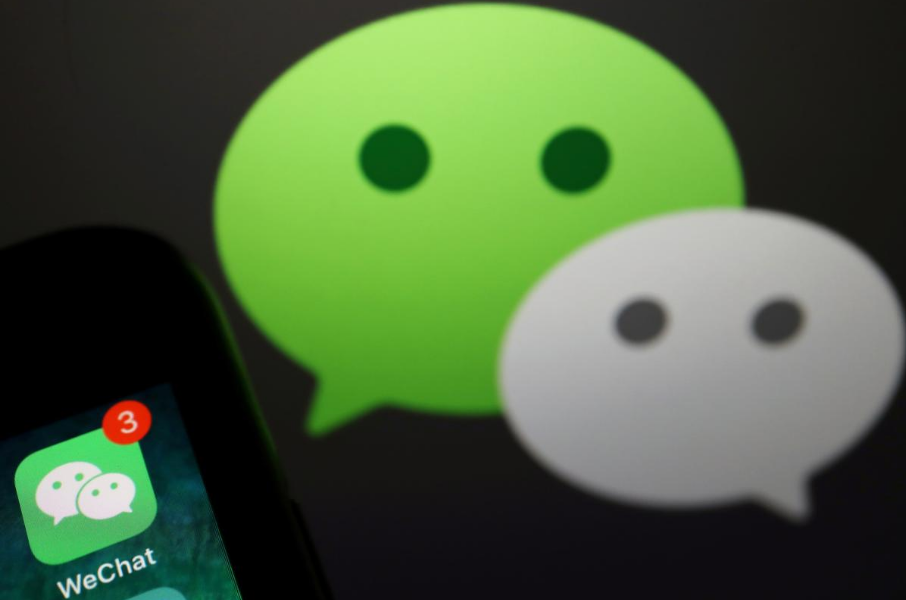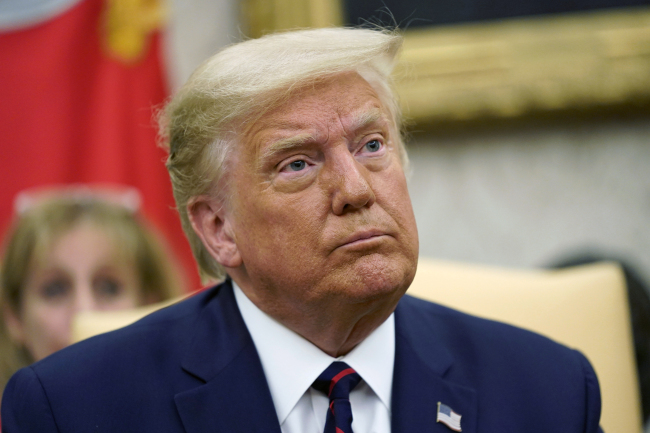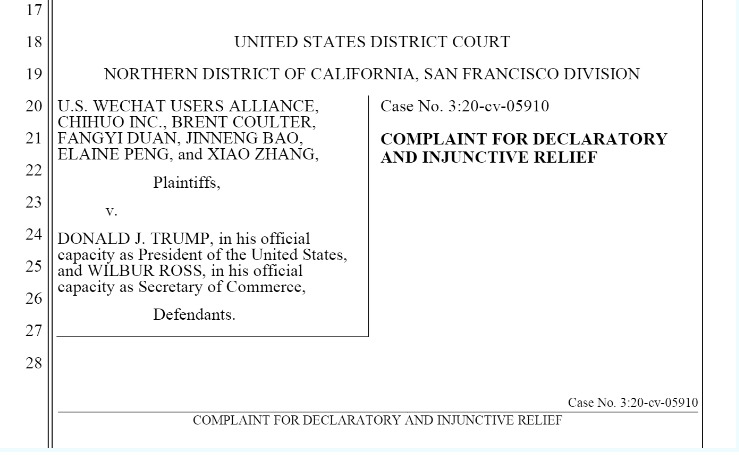
The WeChat logo. /Reuters
The WeChat logo. /Reuters
Some U.S.-based users of WeChat are suing President Donald Trump in a bid to block an executive order he had signed which they say would effectively bar access in the U.S. to the popular Chinese messaging app.
The complaint was filed Friday in San Francisco. It's being brought by the nonprofit U.S. WeChat Users Alliance and several people who said they rely on the app for work, worship and staying in touch with relatives in China. The plaintiffs said they are not affiliated with WeChat, nor its parent company, Tencent Holdings.
In the lawsuit, they asked a federal court judge to stop Trump's executive order from being enforced, claiming it would violate its U.S. users' freedom of speech, free exercise of religion and other constitutional rights.
02:59

"We think there's a First Amendment interest in providing continued access to that app and its functionality to the Chinese-American community," Michael Bien, one of the plaintiffs' attorneys, said Saturday.
"Neither the Executive Order itself nor the White House provided concrete evidence to support the contention that using WeChat in the United States compromises national security," the complaint said.
"The Executive Order was, however, issued in the midst of the 2020 election cycle, during a time when President Trump has made numerous anti-Chinese statements that have contributed to and incited racial animus against persons of Chinese descent."

U.S. President Donald Trump orders bans on transactions with the Chinese owners of popular apps WeChat and TikTok, in Washington, DC, U.S., August 6, 2020. /AP
U.S. President Donald Trump orders bans on transactions with the Chinese owners of popular apps WeChat and TikTok, in Washington, DC, U.S., August 6, 2020. /AP
Trump on August 6 ordered sweeping but vague bans on transactions with the Chinese owners of WeChat and another popular consumer app, TikTok, saying they are a threat to U.S. national security, foreign policy and the economy.
The twin executive orders - one for each app - are expected to take effect September 20, or 45 days from when they were signed and issued. The orders call on Commerce Secretary Wilbur Ross, who is also named as a defendant in the U.S. WeChat Users Alliance lawsuit, to define the banned dealings by that date.
It remains unclear what the orders will mean for the apps' millions of users in the U.S., but experts have said the orders appear intended to bar WeChat and TikTok from the app stores run by Apple and Google. That would make them more difficult to use in the U.S.

Complaint for Declaratory and Injunctive Relief filed by the U.S. WeChat Users Alliance. /U.S. WeChat Users Alliance website screenshot
Complaint for Declaratory and Injunctive Relief filed by the U.S. WeChat Users Alliance. /U.S. WeChat Users Alliance website screenshot
"The first thing we're going to seek is a postponement of the implementation of the penalties and sanctions - a reasonable period of time between explaining what the rules are and punishing people for not complying with them," Bien said.
TikTok, which is owned by Chinese company ByteDance, said Saturday it plans to file a legal challenge against the presidential executive order against the popular video app.
Mobile research firm Sensor Tower estimates about 19 million U.S. downloads of the app. But it is crucial infrastructure for Chinese students and residents in the U.S. to connect with friends and family in China and for anyone who does business with China.
The U.S. WeChat Users Alliance complaint argued that losing access to the app would harm millions of people in the U.S. who rely on it, noting it is the only app with an interface designed for Chinese speakers.
"Since the executive order, numerous users, including plaintiffs, have scrambled to seek alternatives without success. They are now afraid that by merely communicating with their families, they may violate the law and face sanctions," according to the complaint.
WeChat users in the United States rushed to install the app before it could disappear from the app stores, after Trump threatened to ban WeChat, according to Sensor Tower data shared with media.
Read More:
TikTok says to soon file lawsuit against Trump administration
(With input from agencies)